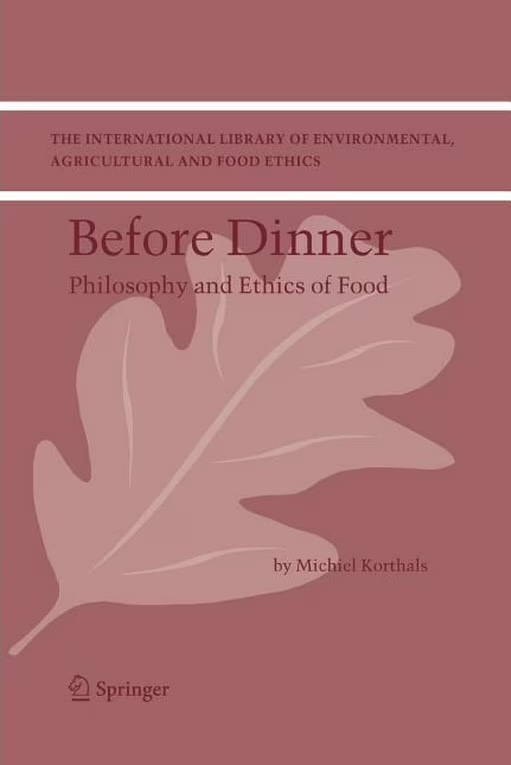Michiel Korthals:
Before Dinner
Philosophy and Ethics of Food, 2002
Translator: Frans Kooymans

3.2 You are not what you eat
Food contributes to meanings and is embedded in meanings; neither aspect should be ignored. In recent food studies I sometimes come across views that forget both aspects and assume that food is the all-encompassing raw material from which human identity is constructed.
You are what you eat(費爾巴哈Feuerbach的名言): this maxim is all too often taken quite literally. Heldke and Grossvenor, for example, state that nutrition determines the total person, that people are what they eat in every respect: 'Food changes into blood, blood into cells, cells into energy, which in turn changes into life; and since your life is imagination, creativity, love, and seriousness, food is life.' The Italian philosopher Francesca Rigotti states in her Philosophie der Küche, Kleine Kritik der kulinarischen Vernunft that "the word is eating, and knowledge is food. Knowing is eating, writing is cooking. For the imaginary, words and eating are one. Through creative analogies between thinking and cooking, she can explain why some philosophers have said meaningful things without being cooks - and why cooks, without being philosophers, are nonetheless able to come up with profound thoughts. For example, analysis is derived, she says, from the cutting of ingredients: combining aspects into a greater whole. Synthesis is nothing other than the adding and stirring of all sorts of ingredients in a large pan of soup being converted into thinking.
.....
No matter how imaginative and original these thoughts about food and identity are, they are not realistic. Time and again it is clear, both in the production process and in the preparation and consumption of food, that totally different dimensions are involved that bear no relation to the production or consumption of food. Power processes and political factors possess a dynamism that cannot be traced back to sowing and harvesting, or to cooking and eating. Meals are not only moments of reconciliation, they are also occasions where quarrels arise and vendettas are fought out. Even our relationship with nature is not dominated by agriculture and food production. Just as important are activities such as recreation, where nature is seen as the décor for travel and exploration, or economic production, where nature functions as a source of energy and raw materials. Food is only one aspect of our identity. An aspect that is seriously underestimated, that is true; but we must also not overestimate the meaning of food.
